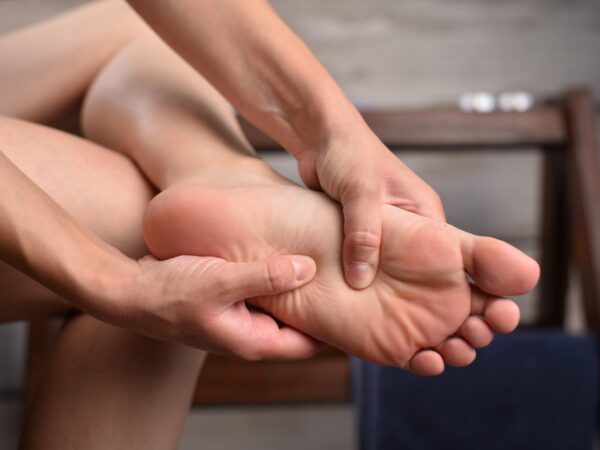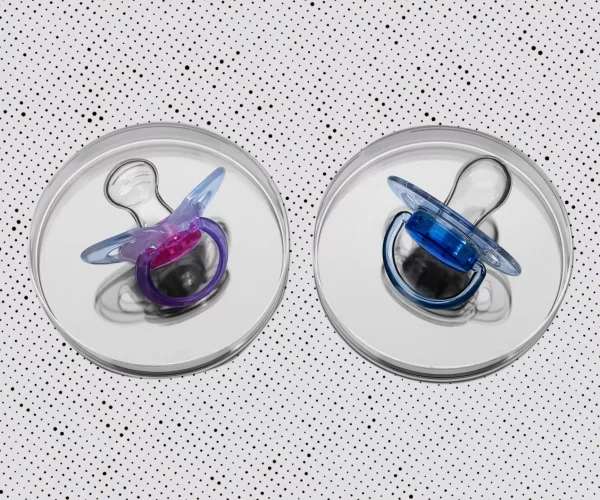Waking up to tingling, numb, or painful feet is alarming. You wonder if you slept on your feet wrong or if it could be a sign of something more serious. While occasional morning foot discomfort is usually harmless, consistent or worsening symptoms should prompt a visit to your podiatrist. Many factors contribute to waking up with foot pain, numbness, or a pins and needles sensation in the feet. Common culprits include:
- Sleep position: Sleeping with your feet in plantarflexion (pointed downward) puts pressure on nerves and reduces blood flow. This irritation during the night causes temporary numbness that fades shortly after getting out of bed.
- Leg crossing: Crossing your legs, whether while sleeping or lounging before bed, pinch nerves and compress blood vessels.
- Improper bedding or mattresses: An excessively soft or uneven mattress that fails to properly support the feet and legs also aggravates nerves and restricts circulation.
- Conditions like peripheral neuropathy, vitamin deficiencies, arthritis, blood vessel disorders, muscle dysfunction, and nerve damage from injury or surgery.
When to visit your podiatrist?
Occasional mild foot numbness or pain that resolves quickly once you start moving around is usually not a major issue. However, recurring or worsening symptoms, and additional issues like consistent swelling skin discoloration, or pain that lingers for hours in the day warrant an evaluation. You should plan to see your podiatrist promptly if you experience:
- Numbness, tingling, or burning paired with constant sharp, shooting, or radiating pain
- Loss of sensation in the feet and lower legs
- Weakness in the feet that causes difficulty balancing or walking
- Skin color changes like paleness, red-purple discoloration
- Shiny, tight, swollen skin
These red flags indicate potential neuropathies, nerve damage, or circulation disorders requiring diagnosis and treatment. Catching issues early helps prevent progression to more advanced, debilitating stages. Even occasional, temporary pain could link to underlying inflammatory conditions or mechanical dysfunction correctable with orthotic intervention.
Diagnosing the cause
During your first podiatry visit for numbness and pain complaints, you expect:
- Thorough review of your medical history, including any recent injuries and medication use
- Physical examination of your legs and feet, checking skin condition, nerve function, strength, circulation, and range of motion
- Possible ordering of blood work or vascular studies to assess blood sugars, vitamin levels, cholesterol markers, or blood flow
- Discussion of imaging options like CT, MRI, or nerve conduction studies if neurological causes are suspected
- Gait and posture assessment
Based on the exam and test findings, your podiatrist will diagnose any structural foot misalignment, arthritis, neuropathy, circulatory dysfunction, or other issues causing discomfort.
Treating morning foot discomfort
- Orthotic inserts and supportive footwear to improve biomechanical foot function
- Night splints to prevent plantarflexion contractures
- Nerve pain medications
- Blood glucose control for diabetes-related neuropathies
- Physical therapy focusing on flexibility, strengthening, and sensory retraining
- Compression stockings promoting venous and lymphatic circulation
- Surgery in some cases of nerve entrapment or joint deformity
Implementing appropriate treatment helps manage chronic cases and prevent worsening damage. While those with occasional morning foot pain make their way toward relief:
- Performing gentle foot and ankle stretches before bed
- Ensuring proper mattress firmness and sleep posture
- Avoiding restrictive sleep socks or leg crossing
- Using a bedside circulation booster at night
- Massaging feet post-sleep to stimulate blood flow
For most people, numbness or prickling in the feet that dissipates shortly after getting vertical is not overly concerning. However, the combination of consistent numbness, actual painful symptoms, and functional foot changes warrants medical attention. Catching and treating the early stages of peripheral neuropathies, arthritic deterioration, and circulation deficits help restore comfort and quality of life.



